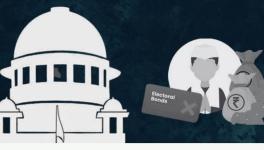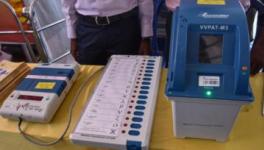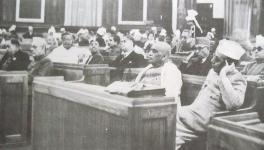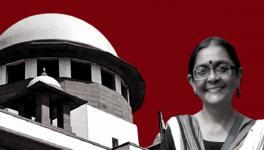SC Recalls Death Sentences Owing to Lack of Effective Legal Representation
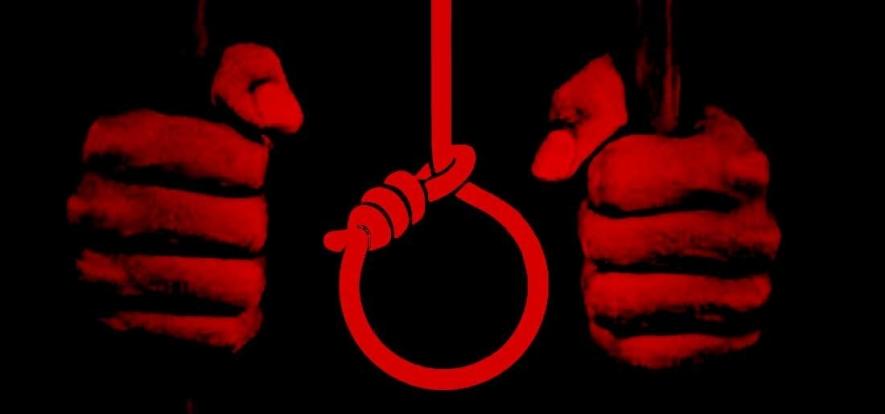
Indian courts, including the Supreme Court, have often extolled about how essential legal aid is to the accused for a free and fair criminal trial. The right to free legal aid is even a fundamental right, as the apex court had laid down in the Hussianara Khatoon case in 1979. There have been numerous instances where courts have ordered a retrial because the accused did not have a counsel to represent him/her, but there are very few rulings where convicts have been spared the noose because they did not have legal representation during the trial or the appellate process.
However, with its October 31 decision in the review petition filed by one Ambadas Shinde and other death row convicts, in which the bench decided to stay the death penalty, marks a small but significant step towards ensuring that effective legal aid, which is an indispensable ingredient for a fair trial, is available to all accused, especially in capital cases. Because the death penalty, if carried out, is an irreversible process. This is particularly true because the Supreme Court itself has been accused of abdicating its responsibility and basing its reasoning on a flawed precedent when it came to a seminal case – the case of Afzal Guru. In this case, the issue of effective assistance of counsel was a crucial issue, as he was convicted for conspiracy in the Parliament attack case of 2001, and was executed in 2013.
In the case at hand, Shinde and three of his co-accused – out of six convicted of murdering five members of a family, including children, and gang-raping and murdering a minor girl who was the member of the same family – were awarded life imprisonment, while the remaining three were sentenced to death. On appeal, the Bombay High Court confirmed the death sentences of the three. By a judgment dated April 30, 2009, a two-judge bench of the Supreme Court dismissed the appeals filed by accused no. 1, 2 and 4. While allowing the appeals filed by the State of Maharashtra, the Court sentenced accused no. 3, 5 and 6 to suffer the sentence of death. During the hearing in the Supreme Court, the convicts had no lawyer to represent them, so the court appointed an amicus curiae, who argued the case on the same day it was assigned to him, and the court reserved the verdict on the very same day – December 10, 2008. What an irony! On World Human Rights Day, a lawyer is not given adequate time to prepare, and argue a capital case involving six lives, and the country’s apex court found nothing remiss in that.
While hearing the review petition, the Supreme Court’s bench comprising Justices Kurian Joseph, AM Khanwilkar and Dhananjay Chandrachud noted the lack of effective legal representation, and recalled the 2009 judgement. However, the bench did not go into any judicial discussion on the issue of lack of effective legal representation, and this is where it could have done a lot more.
Capital defence cases, legal aid, and the right to effective counsel
In Supreme Court’s own words, as it held in the M.H. Hoskot case in 1978, the right to effective counsel arises because judicial justice with procedural intricacies, legal submissions and critical examination of evidence leans upon professional expertise; and a failure of equal justice under the law is on the cards where such supportive skill is absent for one side. Our judicature and judicial process, engineered by kindred legal technology, compel the collaboration of lawyer-power for steering the wheels of equal justice under the law’.
Yug Mohit Chaudhry, a Bombay-based lawyer, who champions the abolition of the death penalty, sums up the inextricable link between lack of effective legal aid and cases of mistrial and miscarriage of justice. ‘In the nine years from January 1, 2000, to December 31, 2009, the Supreme Court gave death sentence in 30 cases. At least 14 of them were defended on legal aid, and many more had legal-aid lawyers in the earlier stages. Twelve of the 14 prisoners wrongly sentenced to death in the controversial Ravji cases (in which the Supreme Courtadmitted its error in wrongly handling down the death penalty, including to Ravji himself, who has been executed) were represented on legal aid.
The Travesty in Afzal’s Case
Indira Jaising, senior advocate in the Supreme Court, wrote a chapter in the book 13 December: A Reader in which she detailed how, during his trial, Afzal was deprived of even a semblance of his right to effective legal aid. Afzal, with no training in the law, had no option but to cross-examine 80 prosecution witnesses all by himself, and withstand the onslaught of a phalanx of the best lawyers the government had lined up against him, all of whom were determined to prove him as one of the masterminds of the terror attack. This is because Seema Gulati and Niraj Bansal, the two legal-aid lawyers appointed to defend him, not only left him to fend for himself, but in fact, during the trial, argued against him in court.
In the Delhi High Court, when Afzal protested again against Bansal’s incompetence and hostility, a human rights lawyer – Colin Gonsalves – offered to represent him, which the court accepted. However, this ‘benefactor’ started his argument by reportedly asking the court not to hang Afzal, but to order his death by lethal injection (Gonsalves, however, vehemently denied this in a public letter). However, not only during the trial, but even on appeal, Afzal was deprived of his right to effective and competent legal representation..
Justice PV Reddi, who wrote the judgement convicting and sentencing Afzal, had an opportunity to salvage Afzal’s fundamental right to life, but instead, condemned him to death by laying down a fatally flawed precedent. There was no violation of Afzal’s right to effective legal representation, he ruled, because all the criteria of the “Strickland test” had been fulfilled. He was going by the United States Supreme Court’s decision in Strickland v. Washington (1984), which laid down a two-pronged test to determine if the legal assistance was adequate. Adopting a “highly deferential attitude” to the lawyer’s performance, and proceeding on the presumption that the representation was effective, the court would require the accused to prove, one, that counsel’s performance was deficient, and, two, that this deficiency in performance prejudiced the defence so seriously as to deprive him of a fair trial – results of which are reliable. The court demanded an “objective standard of reasonableness” without laying down any, and cautioned against the “distorting effects of hindsight” when confronted with a situation that called for invalidating a trial because the standard has not been met.
Why the Strickland Test Fails
Justice Alfred Marshall’s dissenting opinion in the Strickland case is significant. He wrote that rather than automatically giving lawyers the benefit of doubt, much of what could be considered a reasonable defence could “profitably be made the subject of uniform standards.” Further, he held that trial proceedings had to be fair. “The majority contends that the Sixth Amendment is not violated when a manifestly guilty defendant is convicted after a trial in which he was represented by a manifestly ineffective attorney. I cannot agree” he said in his opinion.
In Strickland case, the court went on to stress that the evaluation of such assistance by counsel must be very ‘deferential’ and a strong presumption would be drawn that such assistance was reasonable and effective. It does not require any explanation that adherence to such pre-judicial standards, which are so loaded against the accused, would more often than not result in ‘punishment by procedure (as stated by the majority in Gideon. For these very reasons, the ‘Strickland standard’ has been subjected to trenchant criticism in recent times.
Senior criminal lawyer Kamini Jaiswal says that though access to legal aid is a fundamental right, its implementation in India has been desultory. “Efforts have been made only to increase access, but not to ensure that the quality of such services is commensurate with the elementary standards of fair and just lawyering. In Delhi’s Patiala House and Tees Hazari courts, as well as numerous other trial courts across the country, this right is trampled on day in and day out, while the judges remain mute spectators,” she laments.
It is not without reason that many legal scholars and jurists have said that the Supreme Court needs to do a lot more through its judgements to demonstrate and prove that the court is also the Supreme Court for India. It is good to see the court take a small step towards ensuring effective legal representation in the present case, but it must overtly debunk the Strickland Test in a well-reasoned judgement. And, it must do so at the earliest before further travesties of justice are allowed.
(The views expressed are personal and do not necessarily represent views of Newsclick)
Get the latest reports & analysis with people's perspective on Protests, movements & deep analytical videos, discussions of the current affairs in your Telegram app. Subscribe to NewsClick's Telegram channel & get Real-Time updates on stories, as they get published on our website.









